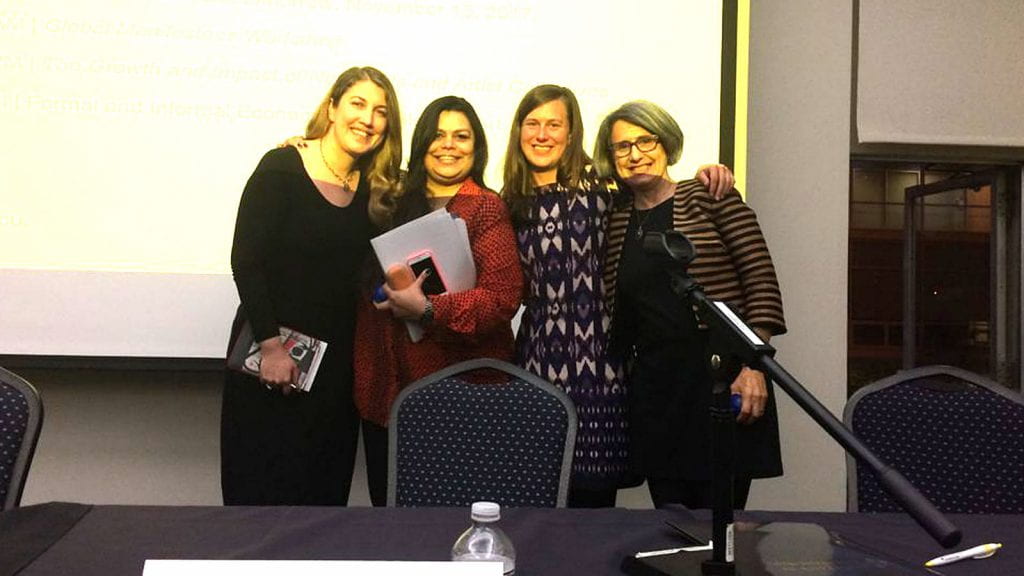Organized by:
Pedro Lange-Churion, Modern and Classical Languages
Tanu Sankalia, Art + Architecture
Sumer Seiki, Teacher Education
John Zarobell, International Studies

Global Manifestos was an innovative workshop for students, faculty and the public that encouraged individuals to share their experiences and reactions to the changes in the art community wrought by globalization. This event was part of the Forum for Transnational Collaboration that occurred on November 17th-18th, 2017, which brought scholars from around the world to voice their perspectives on how globalization has affected the art world in their own domains. The workshop provided an opportunity to elaborate on these vocalizations by giving all participants an opportunity to express their own views on globalization in the form of a manifesto that can be articulated in 60 seconds or less. Further, the organizers of the event (all members of the CRASE Art and Globalization Faculty Research Circle) brought camera equipment out to Oakland’s First Friday Arts Walk on October 6th and to the Minnesota Street gallery complex on October 14th to film public participation outside of the academy. We encouraged all participants to speak impromptu, but we also worked with USF students, faculty, and staff to script manifestos during the first day of the Forum that they could read or designate for others to read at the recording on November 18th. All of the participants of the forum were asked to draft or improvise a manifesto on globalization to ensure that many different global perspectives were represented.
Dialogue In Between from Pedro Lange on Vimeo.
The goal of the Global Manifestos Workshop was to present an alternative to the model of economic globalization by providing a platform for multiple and diverse articulations on globalization. The voices of artists, curators, and critics who do not operate in the United States and Europe have been considered marginal but scholars and professionals need to rethink these norms. Further, the sense the public has about the effects of globalization on their daily lives has not been explored in this context. Thus, the focus was to explore the developments of artists and institutions from the (former) periphery that diffuse their own innovations into global culture and, in so doing, transform the meaning of the visual arts, social dynamics and market processes of the art world. We believe that alternative geographies result from new cultural and economic patterns and these develop unprecedented networks of engagement and participation that this forum was able to capitalize on. The resulting film not only presents the global participants, but also local voices from various communities throughout the city who were encouraged to record their own views. We found locals—old and young, with a variety of professional experiences, ethnic backgrounds, and perspectives on the impact of globalization in their lives—to speak on camera. In this way, we have sought to maximize the variety of voices that contribute to the fabric of the completed film.
Jose Luis Aranda, a graduate student from USF, worked with Director Pedro Lange-Churion to edit the final version of the film so none of the manifestos are viewed in complete form. This intentional approach contributes to a kaleidoscopic whole that reflects a wide array of voices that exemplify diversity and demonstrate the many perspectives on preservation in the midst of change.